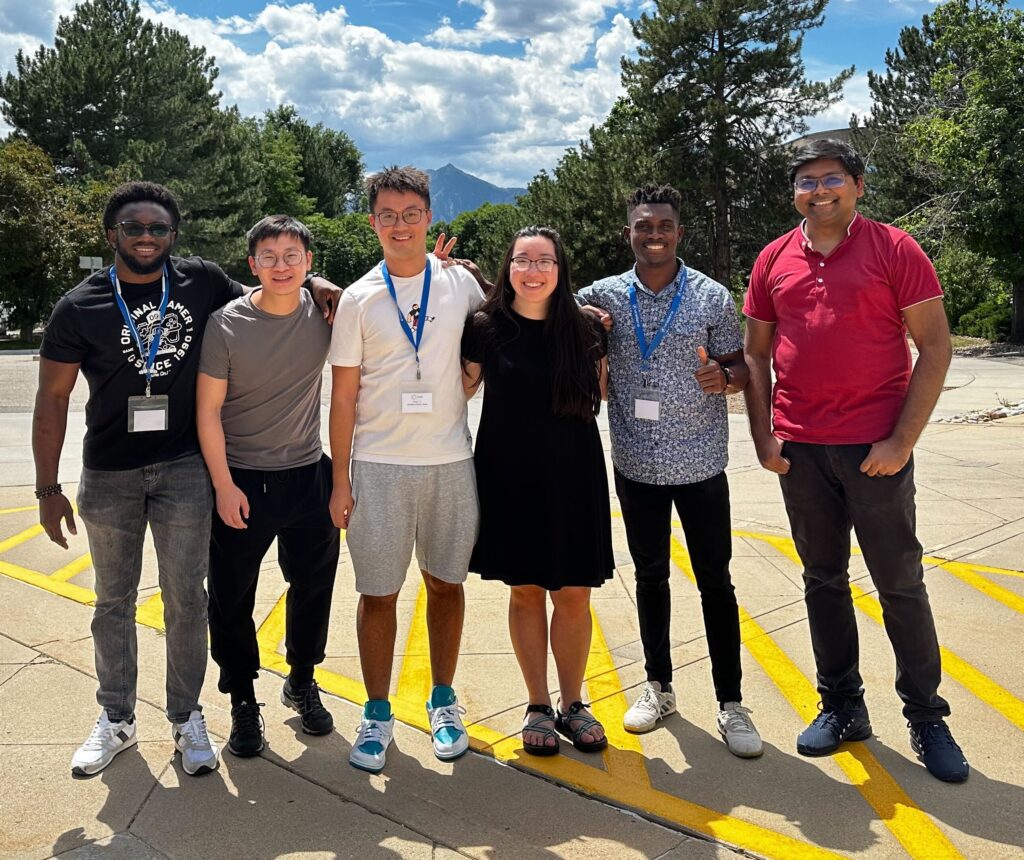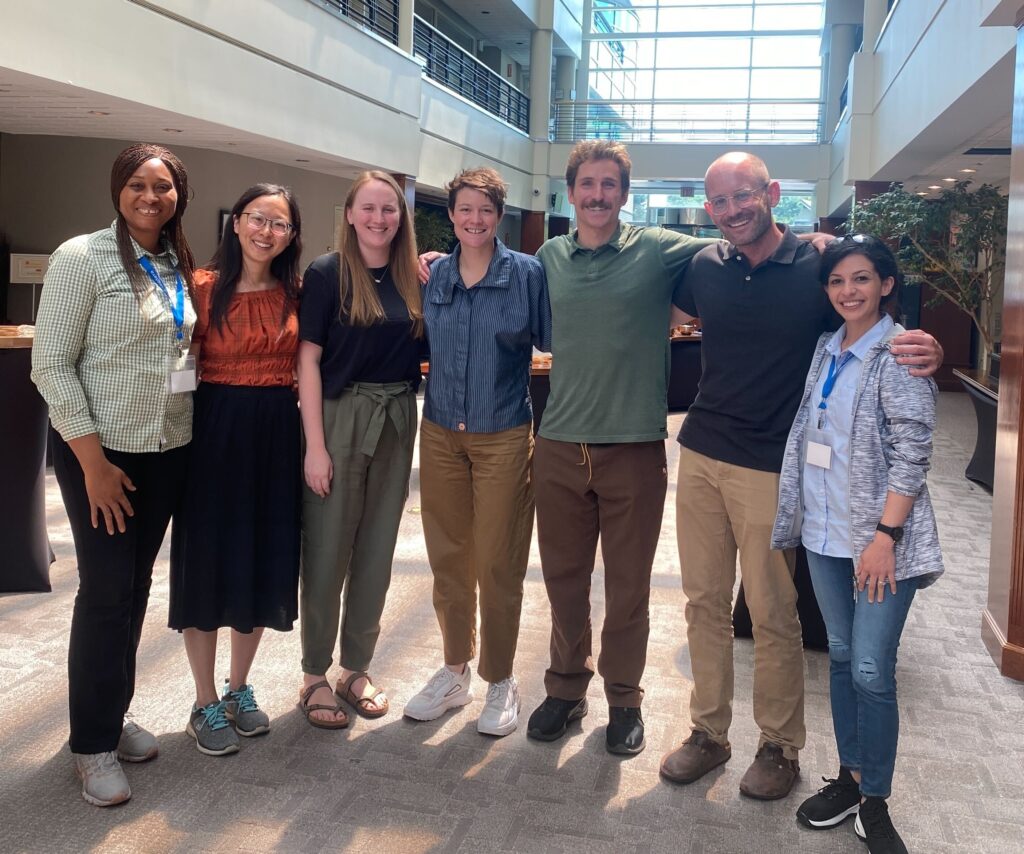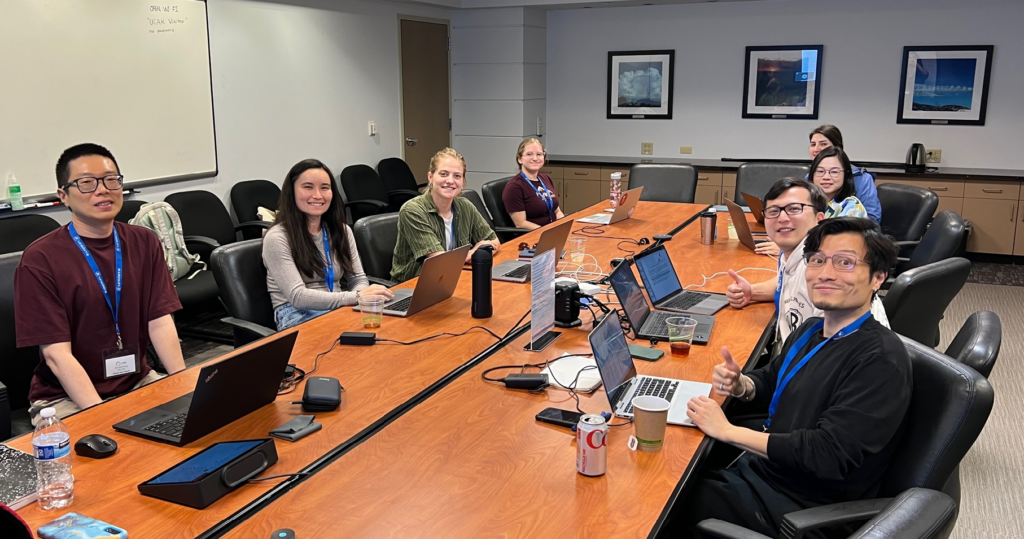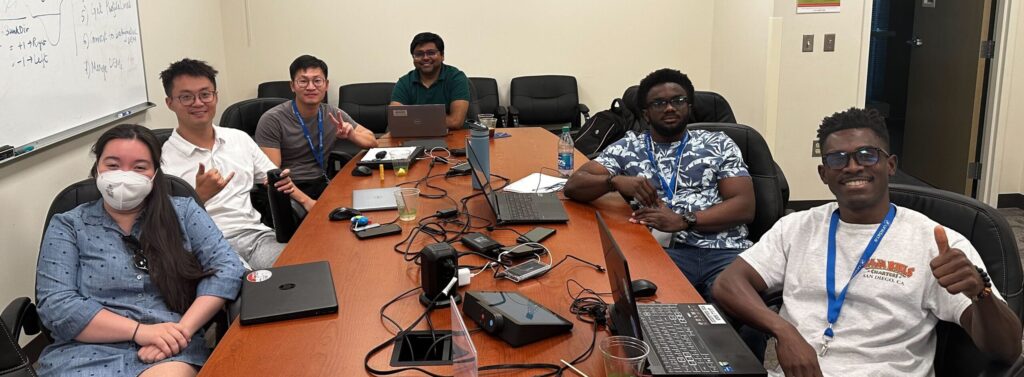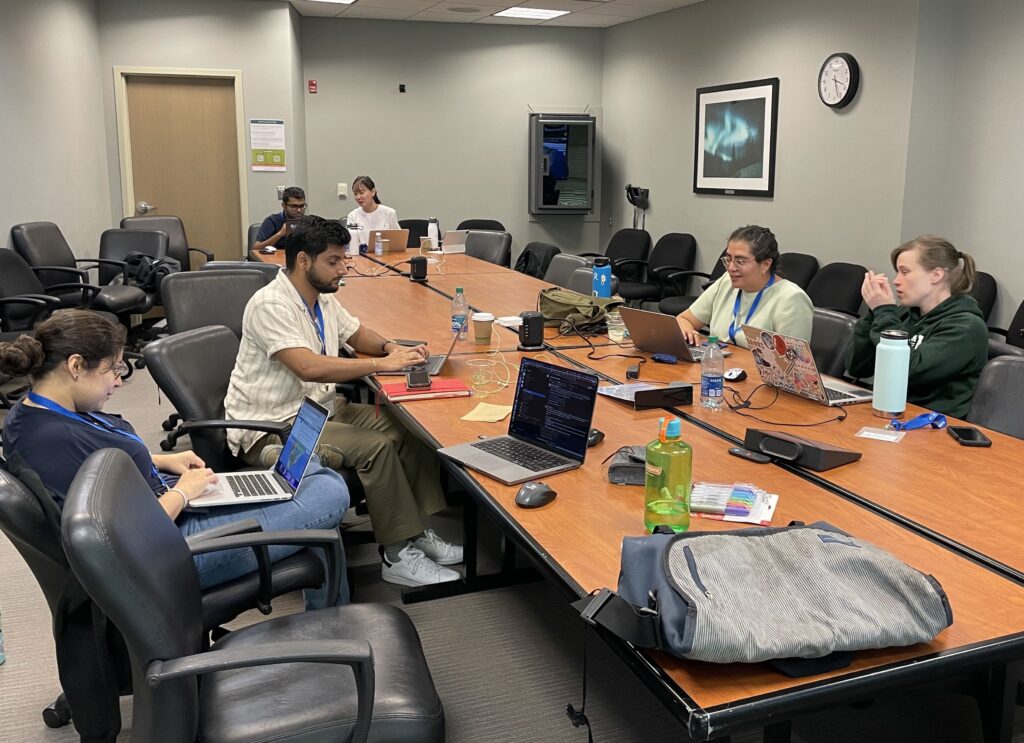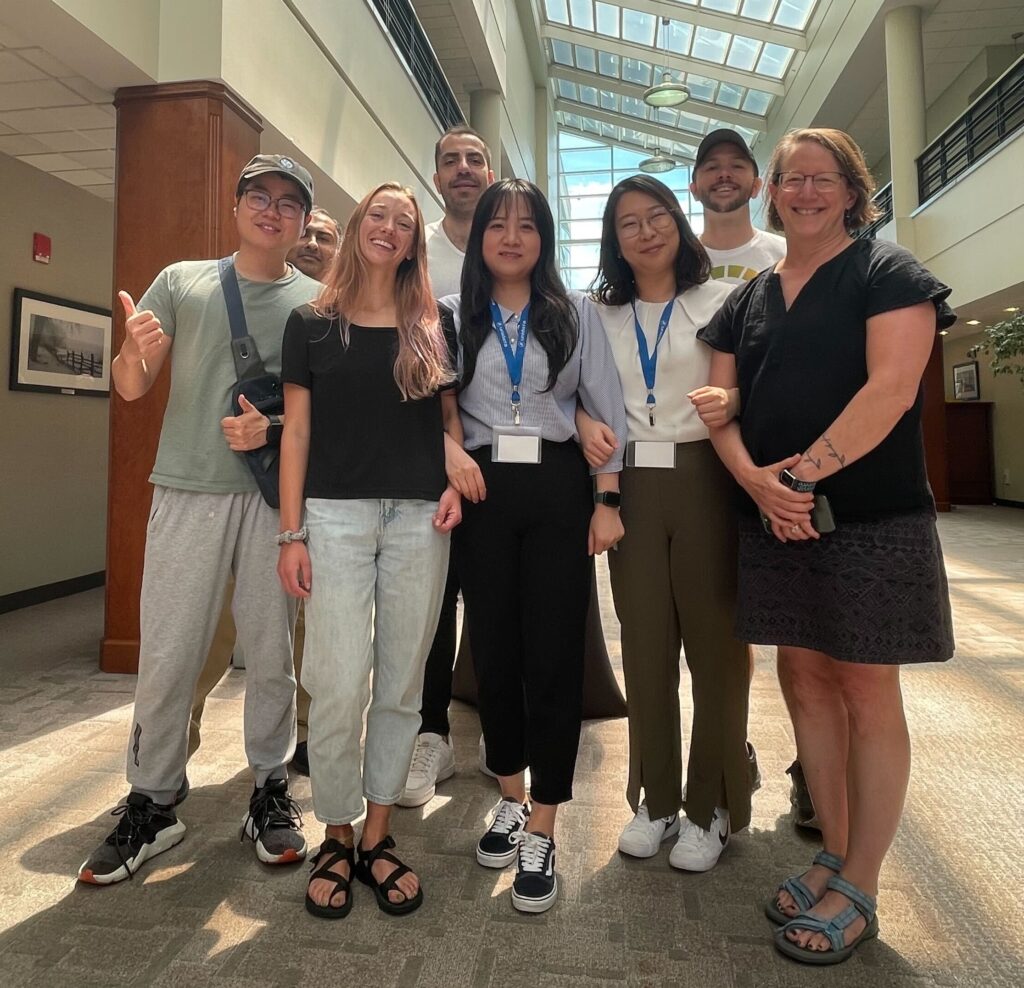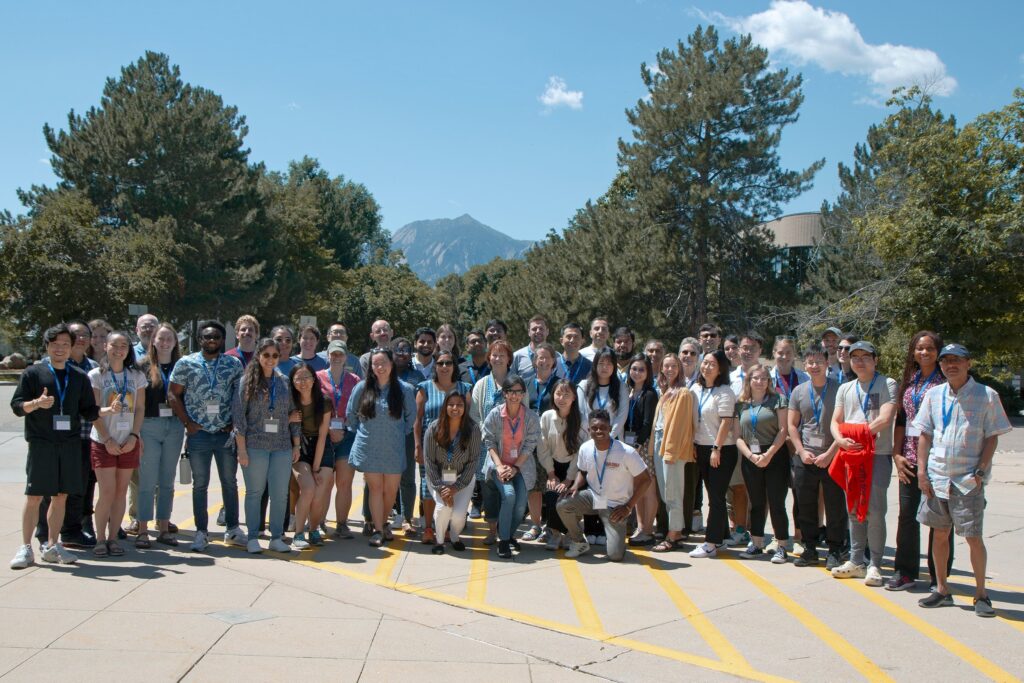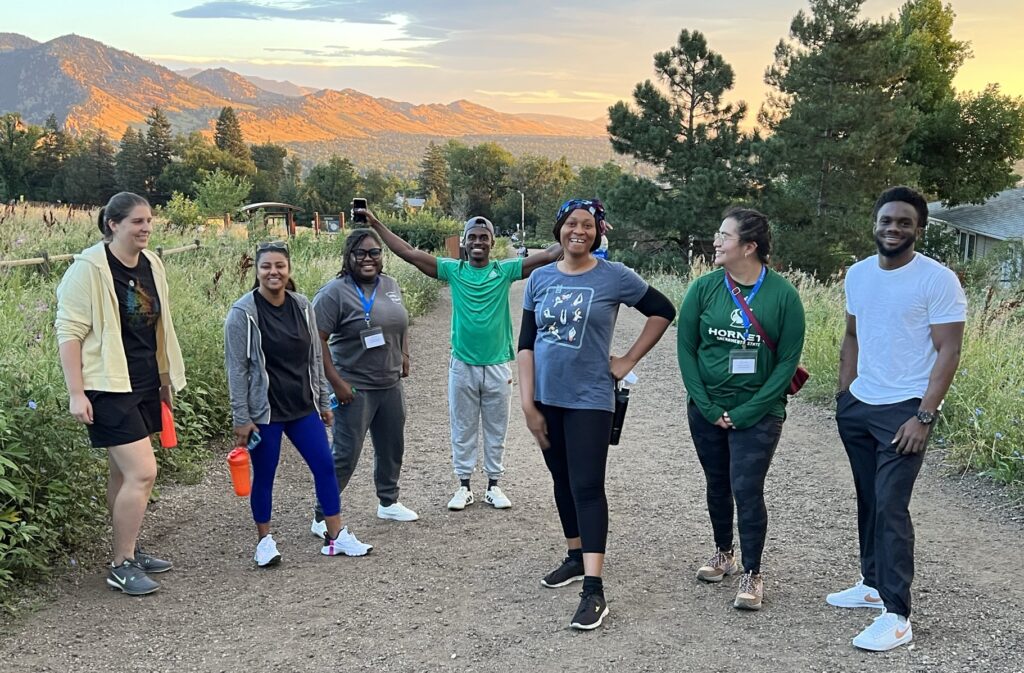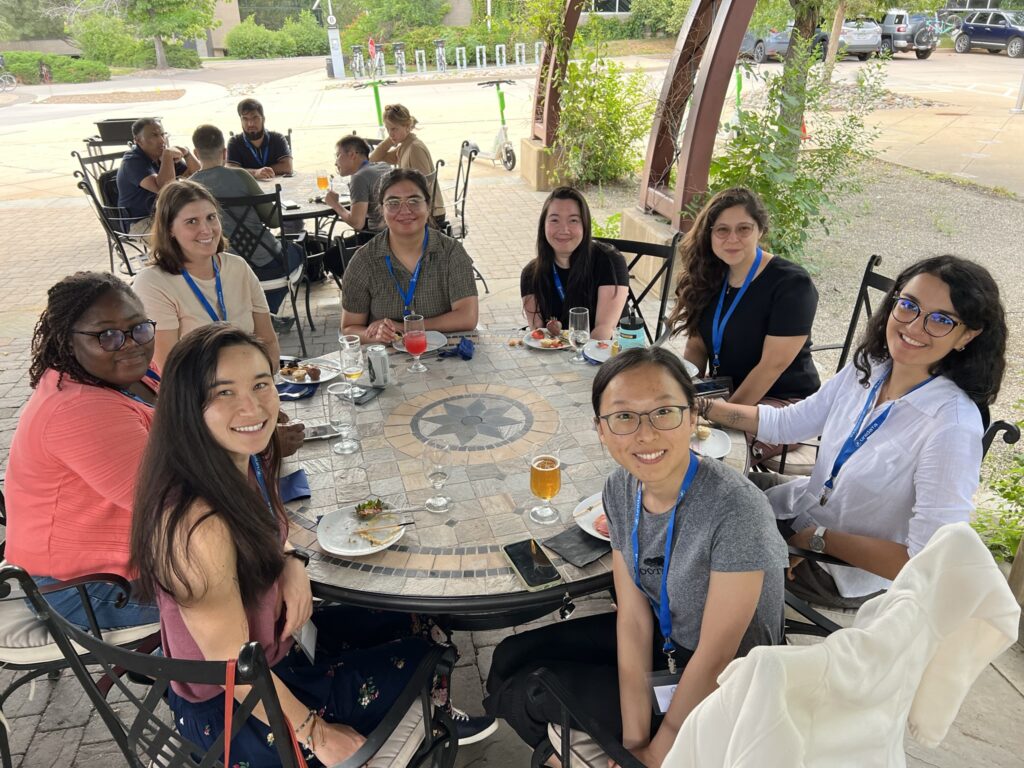Measuring how agricultural labor productivity is affected by heat stress; deriving more accurate models of riverine topography to improve flood predictions; determining where vulnerable populations are particularly at risk from wildfires at wildland-urban interfaces. These were three of the six problems tackled collaboratively by a diverse group of scholars at I-GUIDE’s first Summer School, hosted in Boulder, Colorado by the University Corporation for Atmospheric Research and supported by the National Science Foundation . Each day they experienced the Summer School’s theme: Convergence Science in Action.
For an intense week in August, thirty-five participants – together with project team leaders and technical support staff – wrangled data, selected and executed analyses, and evaluated models and final results. Several of the problems drew from research topics already being pursued by I-GUIDE scholars, especially around issues of water. One team, led by Dr. Irene Garousi-Nejad of CUAHSI, evaluated the effectiveness of the National Water Model’s retrospective simulations for use in modeling the inflows to the Great Salt Lake. Better understanding the shrinkage patterns of this terminal lake is one of I-GUIDE’s current Convergence Science Catalysts. Flooding and water insecurities have been a major I-GUIDE research area, and Dr. Sayan Dey, from St Louis University, led his team through the steps to significantly improve our modeled representation of riverine topography. This refines our predictive models for inundations.
Other groups focused on a key I-GUIDE framework, known as metacoupling, of quantifying how disruptions in one place have measurable impacts in distant locales. Under the guidance of Dr. Zhan Wang of Purdue University, one group used the SIMPLE-G economic model to estimate how policy changes can affect agricultural factors, such as labor productivity. Linking economic and environmental knowledge was also the focus of Michigan State University’s Dr. Min Gon Chung’s team, as they analyzed changes in global trade dynamics due to natural and social dynamics.
Other problems pursued during the Summer School expanded into new areas for I-GUIDE. Eric Jensen of the Desert Research Institute led his team through activities to map and analyze the changing extent of the wildland-urban interface in the United States. Communities at these transition zones are at particular risk to wildfires, particularly when the populations themselves may face additional socioeconomic or other vulnerabilities. A final I-GUIDE team dove directly into the emerging domain of GeoAI. Just prior to the start of the Summer School, IBM and NASA released new foundation GeoAI models, and the team led by Dr. Eric Shook of the University of Minnesota and Dr. Diana Sinton of UCGIS took on the challenge of first importing these new foundation models into the I-GUIDE platform and then fine-tuning one that could distinguish between built-up and non-built-up areas.
While the team projects were the focal part of the week, other group sessions focused on using Jupyter notebooks, guidelines for superior data visualizations, and tutorials on other technical topics. Nor was the week in Boulder all work and no play. Group hikes and socializing were also enjoyed by all.
The I-GUIDE Summer School promises real-world, hands-on learning for its participants, which happens naturally as each team works under fairly unscripted conditions. Team leaders are experts in the topics and data being used, and problems are scaled to be manageable within the time available. But once the work begins, the real world happens: a server might go down, analyses generate unexpected results, and syntax errors persist. Learning how to problem-solve and figure out work-arounds are priceless skillsets in any technical domain!
By week’s end, all teams delivered final presentations. A panel of three judges selected the Great Salt Lake team led by Dr. Irene Garousi-Nejad for overall top honors, and the people’s choice award went to the SIMPLE-G and heat stress group led by Dr. Zhan Wang. Both winning groups were invited to present their final projects at the upcoming I-GUIDE Forum in New York City in early October 2023.
Intensive and collaborative educational programs such as these are a hallmark of the I-GUIDE program. Demand for participation in this 2023 cohort was strong with almost 80 eligible applicants. We’re excited to have launched this new annual series! Stay tuned for announcements about the 2024 offering.
